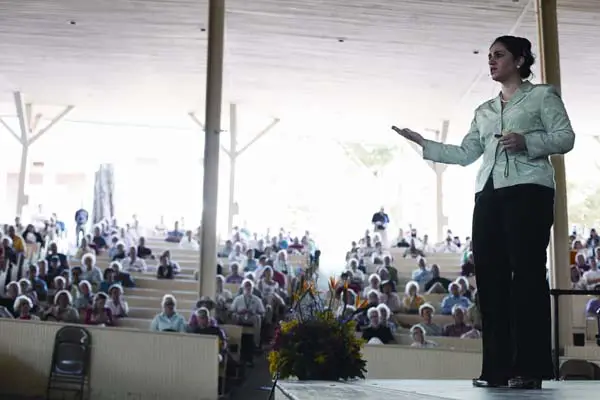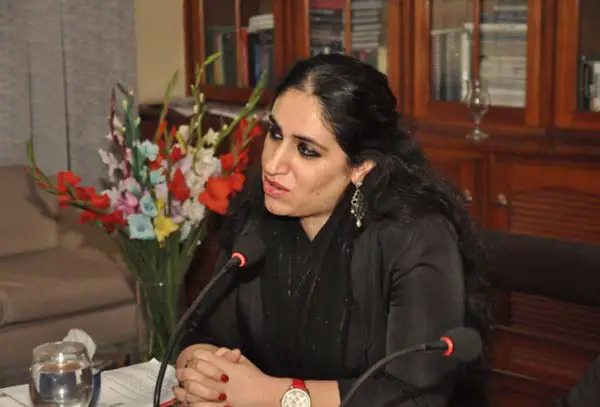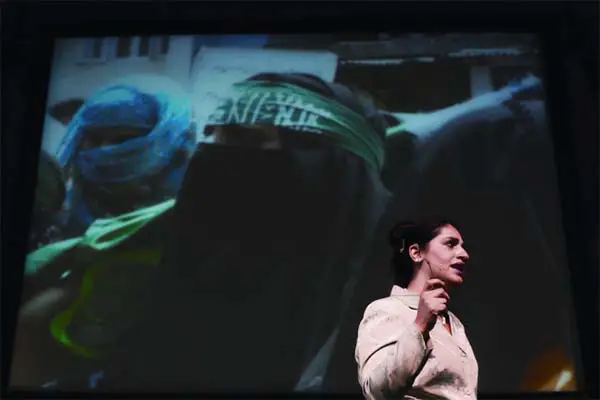Farhana Qazi is a writer and scholar on conflicts in the Islamic world who was born in the cultural city of Lahore in northern Pakistan, but she was raised in the American southwest. In this interview she talks about her work in the field of Islamic studies and women’s rights, as well as about A Silent War, her forthcoming book.
Voicu Mihnea Simandan: You have been a political analyst and public speaker for many years? How has your understanding of world affairs changed over time?
Farhana Qazi: Some things never change. When I was a counter-terrorism analyst in the US Government, I was immersed in the world of terrorism. I traveled to different countries in the Islamic world and worked with foreign liaison partners to protect our national security interests. Then, the world was a frightening place and terror attacks and threats were more common. Many years later, (after I left the US government) I see a world more chaotic and age-old conflicts unresolved. The Middle East is plagued by military juntas battling civilian elites and parties. My birth country, Pakistan, is trying to tread the path of democracy and calling for talks with the Taliban. And the list goes on.
VMS: As an American Muslim woman who has worked in the U.S. Government, how do you feel about the US’s approach to fighting terrorism in the Middle East?
FQ: Every day, the Middle East amazes me. A Saudi woman dared to drive and has changed the political landscape of her country. Another Saudi woman, Haifaa Al Mansour, was the first woman to make a full-length feature film. These are examples of change and hope in a region riddled with social inequalities. However, this is only a start.
While we’re no longer hunting for al-Qaeda in the Arabian Peninsula, despotic regimes are the new terror threat. The region’s shifting political landscape is still unstable; economic challenges prevail and there are evolving security threats. All of this calls for greater international involvement. Syria is in chaos. Egypt is trapped in a battle of who has the right to rule. Iraq is riddled with car bombs. And the list continues. To meet these potentially dangerous threats to regional and world security, the United States needs to outline a new foreign-policy agenda.
VMS: You are also an astute advocate of women rights. Tell us about your work with Muslim women.
FQ: I lecture and write about Muslim women. For years, I have been focused on women in Kashmir, a disputed territory between India and Pakistan. These women are political activists, prisoners, and protestors. They are amazing women, who refuse to be silenced by a conflict that has gripped the valley for more than sixty decades. In my forthcoming book, A Silent War, the stories of Kashmiri women are featured.
VMS: In the Amazing Women section of your website you highlight the work of other women trying to make a change. In your own words, what makes a woman “amazing”?
FQ: A woman with a voice is powerful. All a woman needs is her voice to affect change. Some women do this alone; others do this by mobilizing and joining hands with other women. Since I was a child, I have seen women in my own family use their voice to object to age-old and unjust traditions such as forced marriages. Women have demanded the right to work in Pakistan. My grandmother supported five children as a young widow at a time when women were not welcome outside the home.
VMS: As an expert in Islamic civilization, who has been lecturing for many years, what qualities do you think the new global citizens need in order to understand and accept their neighbours?
FQ: All you need is faith and self-trust. I learned this from Dr. Brene Brown, a research professor at the University of Houston, Texas. When I moved to the United States from Pakistan, I watched my parents close cross-cultural barriers by integrating themselves into the social fabric of American society. I grew up in a family that adopted the East-meets-West brand. My mother is a deeply spiritual woman and she believed in being kind to everyone, all the time. She used her faith to guide her and embrace a new culture, country and sometimes, a new creed.
VMS: Your forthcoming book, A Silent War, is about the conflict in Kashmir, the disputed valley between India and Pakistan. Do you think there will ever be a settlement between the two belligerents?
FQ: Before there can be a solution to Kashmir, regional powers must involve the people of Kashmir. No solution can be genuine without the people that it affects. In my mind, the women of Kashmir, who have arguably suffered the most, must be asked to join the peace process. While few Kashmiri women are political activists, the majority are not. It is the silent majority of women in Kashmir who deserve an opportunity to lead their communities.
VMS: You have written extensively about women in war. Do you see anywhere in the near future a world where women will no longer be the victims of wars and violence?
FQ: Often, women have been overlooked victims of war. In patriarchal and patrilineal societies, it is easy to dismiss women. These arcane systems, usually run by militias and military men, must be replaced by democratically-elected leaders that include female participants. Despite the enormous challenges women face, there are promises of change. In her book, Paradise Under Her Feet, Dr. Isobel Coleman highlights the extraordinary efforts of Muslim women to fight against tradition, tribalism and tyrannical rulers.
VMS: You are a very active woman who has achieved so much. What is your mission in life and who is your role model?
FQ: I have only begun. There is so much to do and I haven’t even scratched the surface. Right now, my goal is to set up a women’s center in Kashmir to offer support for abused women. Since I was a child, my mother has inspired me and taught me to lead a life of service. When she was in college, she volunteered for the 1965 war, which was the second time India and Pakistan collided over Kashmir. “I wanted to show my country (Pakistan) that women can fight too,” she told me one day. Like my mother, I believe in fighting for change.
VMS: Thank you.




